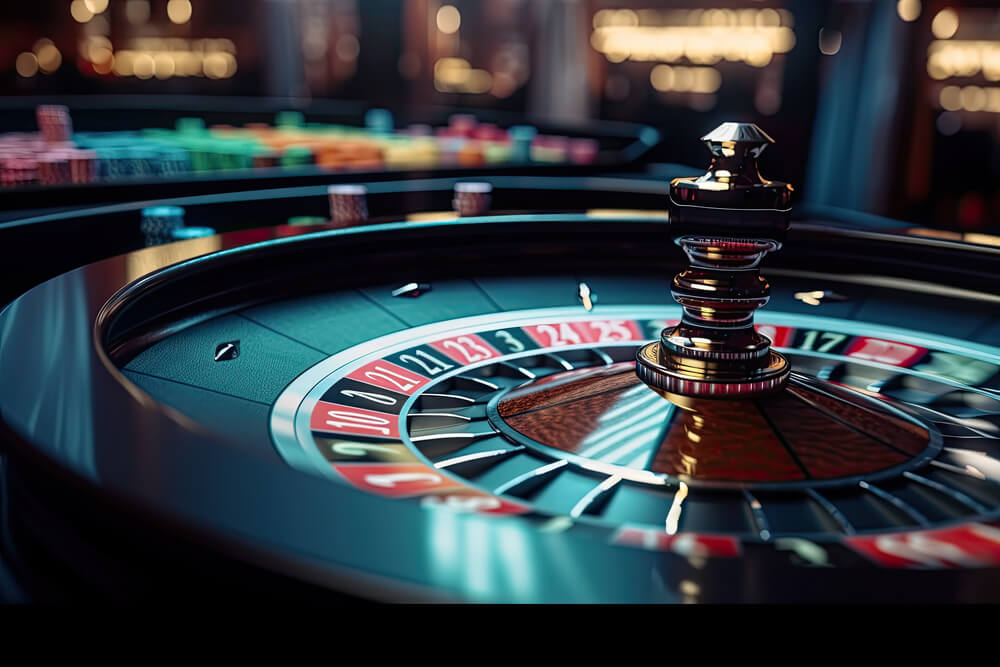
Casino games have long been a significant aspect of human culture, offering not just entertainment but a captivating reflection of our aspirations, wishes, and fears. From the rotating wheels of a slot machine to the skill-based strategies of poker, these games embody a spectrum of human feelings and incidents. At their core, casino games are more than a chance to win money; they are a microcosm of life itself, where risk and reward converge and luck can change in an instant.
As players assemble around tables or sit in front of vibrantly illuminated machines, they engage in a ceremony that transcends mere gambling. These games echo our innate desires for social interaction, excitement, and the pursuit of luck. They also reveal deeper truths about human psychology, such as our relationship with fate and the adrenaline of risk https://w88.gifts/. In exploring casino games, we reveal not only the rules of play but also the complex weave of the human experience, showcasing our intertwining narratives of aspiration and reality.
The Mind Behind Gambling
Gambling is intrinsically connected in the psyche of individuals, appealing to various feelings and desires. The thrill of risk-taking is a core aspect that draws players in, be it the excitement of spinning a roulette or the anticipation of drawing a winning card in poker. This rush of adrenaline is frequently likened to other forms of thrill, as the unpredictability of outcomes elicits a distinct psychological response. Players often become captivated by the chance of striking it rich, leading to an almost magnetic draw toward casino games.
Additionally, a crucial component of the psychology behind gambling is the concept of optimism and aspiration. Players often nourish dreams of financial freedom and the luxurious lifestyle that can accompany winning. This optimism fuels their continued participation in casino games, as it provides a sense of purpose and the conviction that a life-changing win could be just one wager away. The narrative of beating the odds and finding success resonates with many, strengthening their commitment to play and involve themselves with these games.
Finally, social aspects play a significant role in gambling psychology. Gambling venues are designed to promote social interaction, where gamblers gather to share the experience of wins and losses. This shared aspect not only amplifies enjoyment but also influences behavior, as individuals often imitate the actions of others in their vicinity. The collective approval found in mutual thrill can enhance the emotional experience, making casino games a reflection of not just personal desires but also collective engagement within the gaming community.
### Risk and Reward: A Double-Edged Sword
Gambling activities embody the fragile balance between danger and gain that resonates deeply with human psychology. The rush of placing a wager is often accompanied by a jolt of energy, as gamblers are confronted with the possibility of striking it rich, yet conscious of the possibility to lose. This bipartisan experience reflects a essential aspect of life: the paths we choose often come with intrinsic risks, and the quest for benefit can compel us to take chances we might not otherwise consider. In this way, gambling activities reflect real-world decisions, enticing players to risk not just their funds, but also their hopes.
The allure of jackpot prizes and winnings fuels a wave of hope, encouraging players to dream of a more promising future that could emerge from a single victorious spin of the wheel or dealing of a hand. This hope can compel individuals to engage in greater risks, pushing them to push their boundaries in search of economic benefit. However, just as in life, the results of these decisions can lead to both victory and loss. The narratives of both big winners and those who have lost everything at the casino demonstrate the unpredictable nature of chance and its impactful effect on our lives.
Ultimately, the interaction of engaging with gambling activities serves as a potent reminder of the nature of humanity. Every game played is imbued with the tension of uncertainty, as gamblers weigh the gains against the dangers. This balance not only highlights the excitement that comes with betting but also reveals the risks that come with the longing for more. As we explore the complexities of decision-making and results in both the gambling world and in life, we find that the search for benefit shapes our identities and journeys in profound ways.
Society and Solitude in Gambling Environment
Casino culture is a distinct blend of communal interaction and personal endeavor, reflecting the dualities of human experience. Players often gather around tables, sharing in the excitement of the game, celebrating wins, and sympathizing over losses. This social aspect is vital, as it establishes a sense of belonging and bonding among diverse groups of individuals. Regular visitors to casinos may build friendships and develop routines, turning the casino into a second home where they feel linked to a greater community of players.
However, the attraction of casino activities can also result to loneliness. As individuals become engrossed in the thrill of playing, they may isolate from personal connections or neglect to interact with the environment outside the casino. For some, the search of a jackpot can distract from real connections, leading to loneliness. The situation of being among people yet experiencing solitary is not rare, as the attention shifts from collective fun to the individual stakes of each player’s path.
This interaction of society and solitude creates a vivid tapestry that defines casino culture. It showcases the intricacy of human interactions, where joy and sorrow coexist. đăng ký w88 Casinos serve as both a sanctuary for social engagement and a platform for individual struggles, demonstrating how intimately connected our yearning for companionship and the personal quest for wealth can be. In navigating this environment, players confront their own narratives—seeking both the rush of the game and the fellowship of other gamblers, ultimately reflecting the wider spectrum of individual experience.
